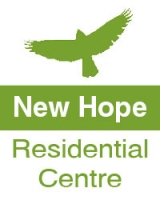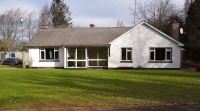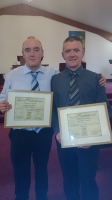New Hope Residential Centre
With your support real change is possible!
In 2007, New Hope Residential Centre opened its doors to men in poly-drug and alcohol addiction coming from a background of homelessness or at risk of homelessness. Since then New Hope has grown to housing 14 men.
Our overarching strategic objectives is; �to offer a safe environment for men to become totally abstinent from substance misuse, through a comprehensive Christian faith based addiction programme�. One of the goals under this objective commits the organisation to:
�Secure resources for the Residential Services including step-down support into long-term education and employment.�
We are doing this through a growing, small but dedicated group of supporters of which you are one. Because of your gift to New Hope we will be able to continue to offer the service of a Residential Addiction Programme to homeless men and addicts from all over Ireland.
There is one fatal overdose in Ireland every day giving Ireland the third highest death rate due to drugs in Europe and triple the number deaths on our roads. The urgency of our work has never been greater. Therefore your gift at this time is all the more important to us and will go towards helping those who desperately need it today.
Frankly, we could not do this work without you and others like you. We,
and those we serve, deeply appreciate your generosity.
New Hope is proud to be applying the Governance Code for Community, Voluntary and charity organisations and we would like to assure you that your donation will be used to provide the service to those who are most vulnerable in our society.
overview
Why we exist;
[1] With one fatal overdose in Ireland everyday giving Ireland the third highest rate of drug overdose in Europe Layton Kelly founded New Hope Residential Centre (NHRC) in 2007. [2]Key findings from the Drug Outcome Research in Scotland (DORIS) found that 76% of drug users questioned identified a single goal for their treatment; overwhelmingly that goal was to become drug free as their sole goal from drug treatment. This compares with 7.4% who cited that their goal was to stabilize their drug use. [3]The DORIS further found that only 3% of drug users on methadone were drug free nearly three years following the onset of treatment.
We exist to support those coming from addiction and homelessness or at risk of homelessness who are the most vulnerable in society, through to a life free from addiction and poverty. To enable these men to return to their families and community with the necessary skills and education to contribute to those communities. Ultimately our goal is to reduce relapse and to create a safer and healthier more inclusive society.
[1] 2015. . [ONLINE] Available at: http://www.hrb.ie/uploads/tx_hrbpublications/NDRDI_web_update_2004-2011_220114_01.pdf. Page 1 paragraph 3. [Accessed 13 April 2015].
[2] 2015. . [ONLINE] Available at: http://www.drugmisuseresearch.org/wp-content/uploads/2013/09/doriskeyfindings-2.pdf. page 16 para 2 [Accessed 04 August 2015].
[3] 2015. . [ONLINE] Available at: http://www.drugmisuseresearch.org/wp-content/uploads/2013/09/doriskeyfindings-2.pdf. page 55 para 2 [Accessed 04 August 2015].
where your money goes
Your gift is vital to us!
Your gift will be used to support the programme and the day to day running of, and the upkeep of the Home, providing educational activities and transport by way of helping to keep our mini bus on the road.
We welcome visitors and groups by appointment and are happy to give more details on the charity and how your gift can be used if you would like to support a particular project. From time to time we will advertise specific projects on this site.
history
Layton Kelly, founded New Hope Residential Centre CLG in 2006. A former addict himself who received addiction recovery support in Scotland, Layton graduated from college and worked in the homeless section in Glasgow City Council for five years before returning to Dublin to establish an addictions programme in his own community.
The men�s residential programme was established in 2007, offering a 12 month programme for 3 men. At the beginning of 2016 we have increased this number to 19 men in full time support, and 6 men in step down housing. The residential home is situated just off the N81, Dublin 24; and takes referrals from the four Dublin Regional Areas, South Dublin County, Dublin City, Dun Laoghaire, Fingal and all over Ireland, all faiths and backgrounds are welcome.
The 12 month residential programme for men in addiction and homelessness has three phases. Through individualised care plans and key working sessions, clear pathways are agreed and goals set with each resident. All aspects of the service users life are addressed at this stage; health, housing, education, legal, relational/family, social, financial, emotional and spiritual. Group work in a peer supported environment addresses addiction, behaviour modifications and character development. Relapse prevention, anger management, money management, educational requirements are all dealt with along with much more. FETAC level 3 computers, literacy, and numeracy are covered. Stage 2 Access is given to support and advice for career and second chance educational pathways, support will continue and residents will start on education or employment pathways while still living in the home with all of the stage 1 supports available. Stage 3 residents will prepare to move back into the community and family, back to employment or full time education, step down housing is available at this stage.









 Unit 28B,
Unit 28B,








